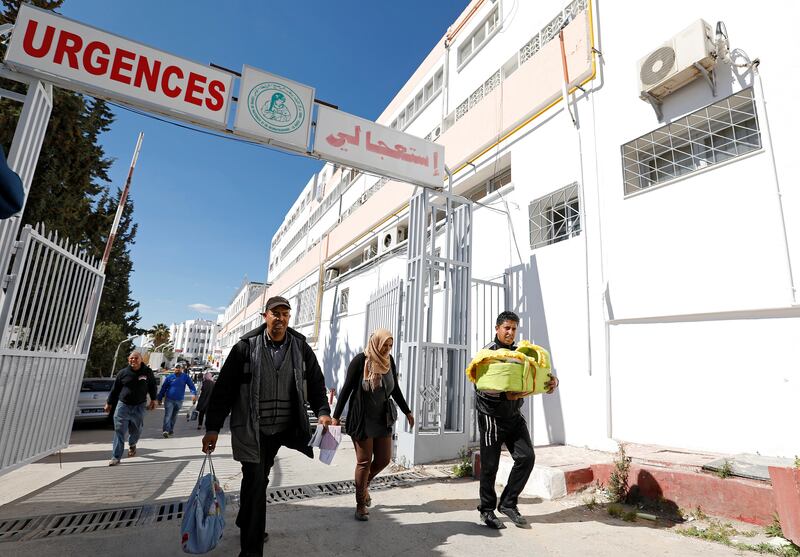As part of its national family planning strategy, Tunisia gave women the right to an abortion in 1973 but since then, access has been challenging, a women's rights group said on Thursday.
According to article 214 of the penal code, medical abortion, or pregnancy termination, is legal in public institutions, deterring unsafe abortion methods and saving many women’s lives.
Tunisian law gives this right for pregnancy durations no longer than three months.
However, the law does not oblige doctors, midwives or even administrative staff to conduct the procedure, meaning they can withhold the service based on personal convictions, according to women's rights group Tawhida Ben Cheikh, which held a press conference in Tunis on Thursday.
This limits access, causing subsequent danger to women’s lives if they resort to illegal abortions in unlicensed venues, it said.
“Tunisian law cannot oblige doctors and other medical staff to conduct abortion. For that reason we must try not only to raise their awareness of how this law might save lives, but also walk towards punishment of those who deny women this right,” said Dr Hela Chelli, a specialist in gynaecology who works in the private sector.
If medical staff reject carrying out the procedure, it would contradict the ethical charter and oath taken by doctors in medical school.
The lack of access to information on reproductive health is another reason why more than 30 per cent of the population are unaware of their rights in Tunisia, the Tawhida Ben Cheikh women’s rights group said.
In Tunisia, there are 24 family planning centres where women can have abortions free of charge. But the limited number of these centres, which are concentrated in urban rather than rural areas, is one of several challenges the service has faced over the past 50 years.
“The question today is that the law exists, the centres exist, so why are there these problems of denying women their right to access this service?” said Dr Hedia Belhadj, president of the Tawhida Ben Cheikh women’s rights group.
“For years, we have struggled with the existence of accurate data regarding the number of abortions in Tunisia – that makes evaluations difficult as it lacks transparency."
Abortion has always been free of charge in public Tunisian institutions, however, women still have to pay for transport that is sometimes unaffordable for those who live far from public clinics.
The political will to apply the law does not exist and family planning is no longer a priority, Dr Salma Hajiri, a speaker at the event, said.
However, recent data from the National Institute for Statistics indicates that Tunisia has witnessed a decrease in population growth due to the Covid-19 pandemic and people’s reluctance to get married amid the economic crisis in the country.
Amid this environment, family planning implementation has been neglected, while changes in the ruling political system, and economic and political chaos have not helped.
“I have been working in the medical sector for more than 40 years and I saw many times women who came to us on the verge to death. We thought when this law came, it would eradicate the unhealthy way of abortion,” Dr Chelli said.
Recommendations
According to Dr Chelli, the one article legalising abortion in Tunisia is not enough and needs to be revised, removed from the penal code and merged with the health sector law.
“If women are convinced that they do not want a certain pregnancy, they need to find the adequate circumstances to have access to this right.”
Communication between the state and civil society is also essential to increase access to the right.
Obstetric violence [the act of inflicting emotional and sometimes physical harassment on women during pregnancy] is another phenomenon that the law should criminalise," the Tawhida Ben Cheikh women’s rights group said.
Women who are trapped in violent and abusive relationships could be afraid to seek access to abortion, despite its free cost in public clinics, speakers also noted.







